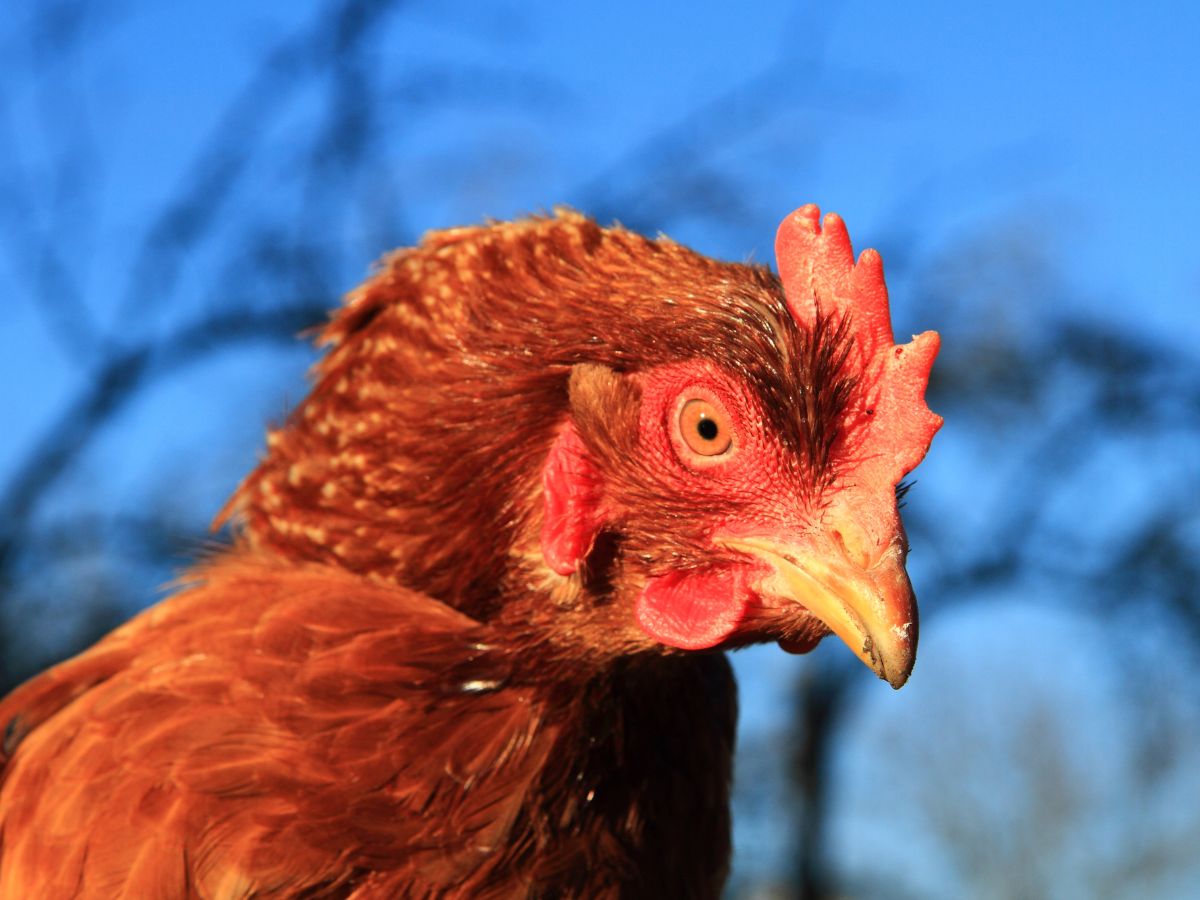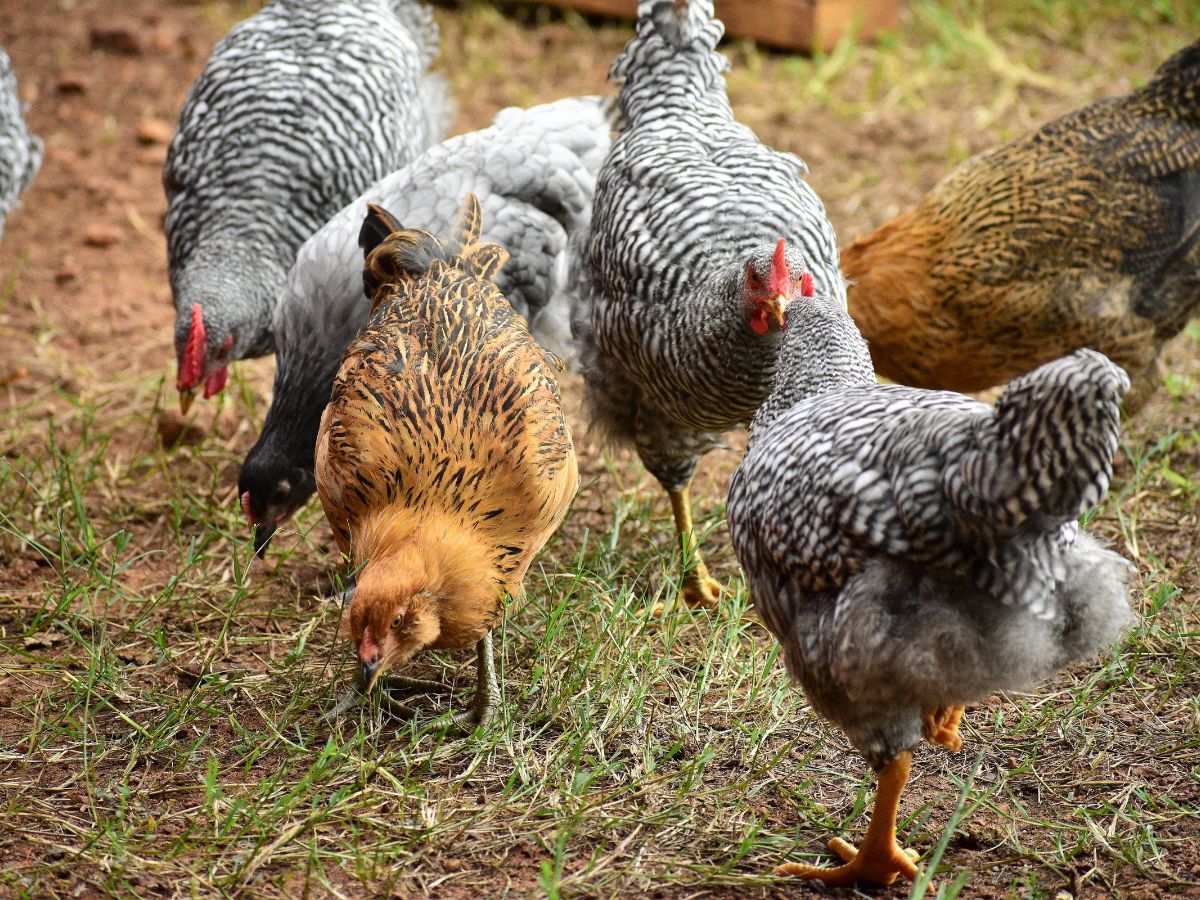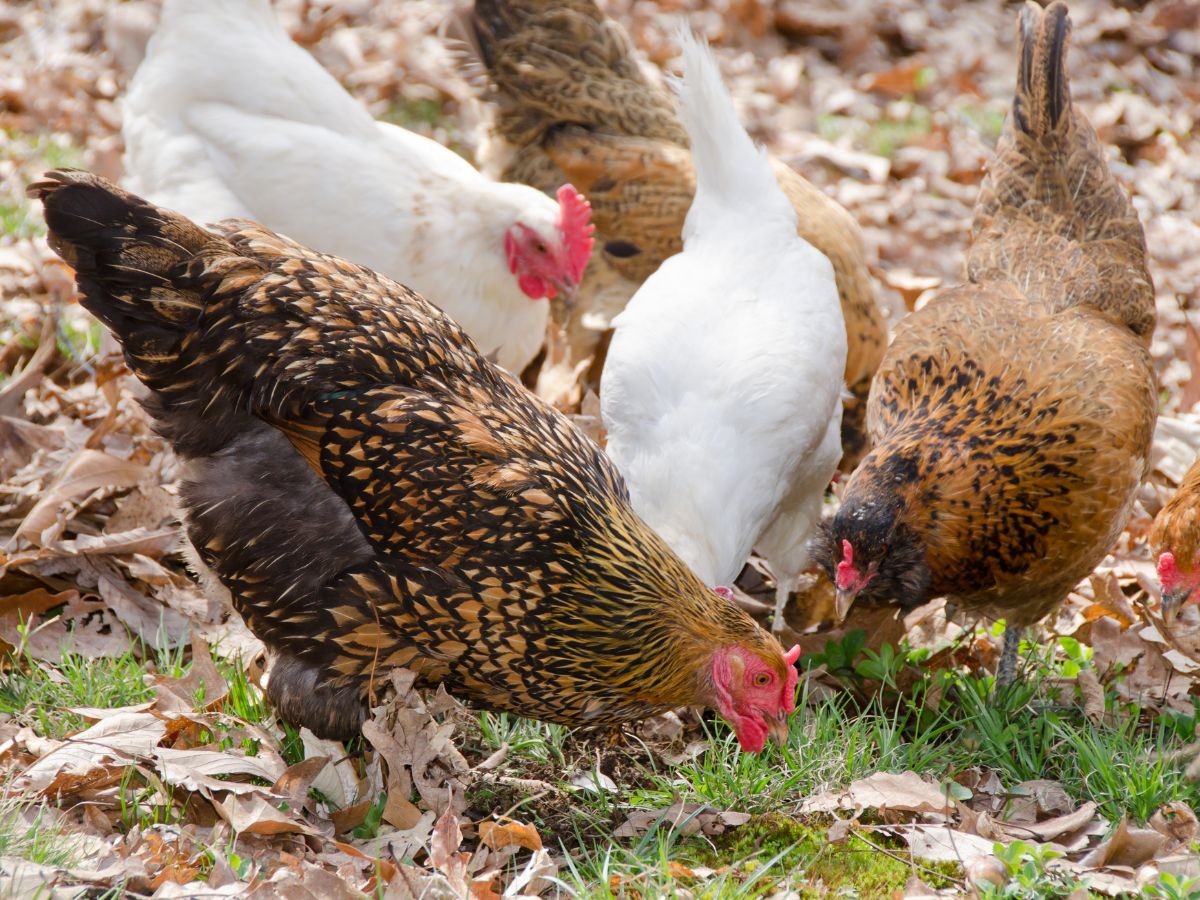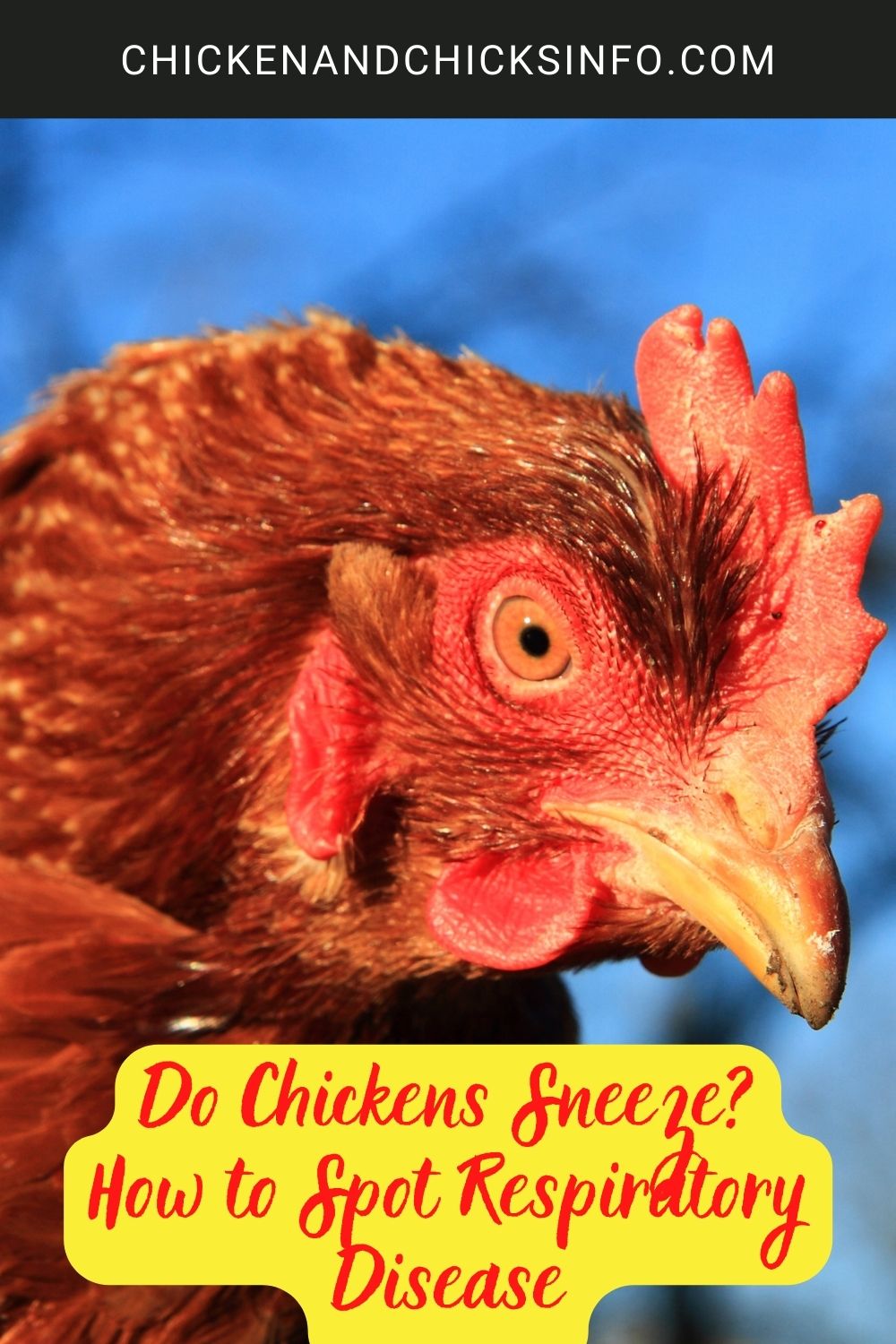
Yes, chickens do sneeze. It sounds similar to any other animal sneezing and isn’t hard to notice. It may be a one-off due to dust, it may mean they have a cold or flu virus, or they may have a respiratory illness.
If you’ve been noticing your chickens are sneezing more than once here and there. Please read on, you may need to get them treated for a potentially harmful disease.
Jump to:
What Does It Mean When a Chicken Sneezes?
As I mentioned above, if a chicken sneezes once they might just be clearing some dust from their nose.
If they are sneezing on a regular basis, however, this might be a sign of respiratory disease. If you get close to your chicken and can see they are holding their mouth open and/or wheezing, these are classic signs they have a strain of Mycoplasma bacteria.
What Are Mycoplasma Bacterias?
Mycoplasma is a strain of bacteria that attacks the respiratory system in chickens. There are dozens of species and it can get quite complex, but there are two main strains that are known to affect chickens;
- Mycoplasma gallisepticum (MG); and
- Mycoplasma synoviae (MS).
Mycoplasma Gallisepticum in Chickens

MG is well-known to poultry breeders across the U.S. It’s a costly disease as it affects egg production in laying hens, growth of birds being bred for sale, and can be fatal.
It’s not as common in backyard chickens but will cause the same problems for owners if their flock is contaminated.
If you have your chickens isolated, you’re probably wondering how it can get into your flock. The main cause will be from a wild bird. MG can be passed through direct or indirect contact from an infected bird.
While the bacteria can’t survive outside of a host for many days, it can still be spread by walking in infected feces, from birds coming into contact with it, etc. It can also be passed via ovarian infection from mother to a chick.
The worst part is that it can often go undetected for a long period as some chickens will not show any symptoms.
One of the first symptoms is often sneezing. As well as coughing, wheezing, nasal discharge, and most of the other symptoms that are typical of other respiratory diseases.
If you suspect your chickens have MG you’ll need to get them checked out by a vet. There are tests that will be able to confirm it for sure.
Mycoplasma Synoviae in Chickens
Mycoplasma Synoviae has a similar impact and symptoms as MG, but it can also spread to your bird’s joints can cause swelling.
It’s also spread in the same ways, primarily through other hosts and from mothers to chicks. Again, the main symptoms are sneezing, wheezing, nasal discharge, and coughing. It also causes a decrease in egg production and growth.
Controlling the disease consists of vaccination, medication, and eradication. There have been numerous studies, like this one published in BMC Veterinary Research, into how effective various antibiotics are at treated MS - but the results are mixed.
If you suspect your flock has MS you will need a first get confirmation from a poultry veterinarian, then discuss your options with them.
Ways to Prevent Mycoplasma in Your Flock

As already mentioned, prevention is the key to minimizing the risk to your flock and managing the disease once they have it.
If you’re not already using good biosecurity practices while maintaining your backyard flock, it’s never too late to start.
I have a pair of shoes outside my run that I slip on whenever I enter their run and coop. This is good practice to reduce the chance of spreading any parasites from inside to outside their coop.
I also have a roof over their run, this reduces the chance of wild birds dropping and spreading any parasites with my chickens.
Increasing the ventilation and conditions in their coop where possible is always a good step. Also, reduce any damp, and keep their living conditions clean.
Related content - How often to change your chicken’s bedding.
If you suspect one or more of your chickens in your flock has either MG or MS, you should quarantine the bird asap. Get them tested by a poultry vet, it might just be flu causing them to sneeze (I hope).
This way you can act on their advice specific to your bird and conditions. You might have stopped it being spread to the rest of your flock too.
In Summary - Do Chickens Sneeze?
My goal wasn’t to scare you that there might be something seriously wrong with your flock if you hear a sneeze coming out of their coop.
But, it’s good practice to take a closer look at your chicken if they’re sneezing, just to be on the safe side.
If it’s accompanied by any of the other symptoms I covered above, like wheezing, coughing, etc you should seek medical advice.





